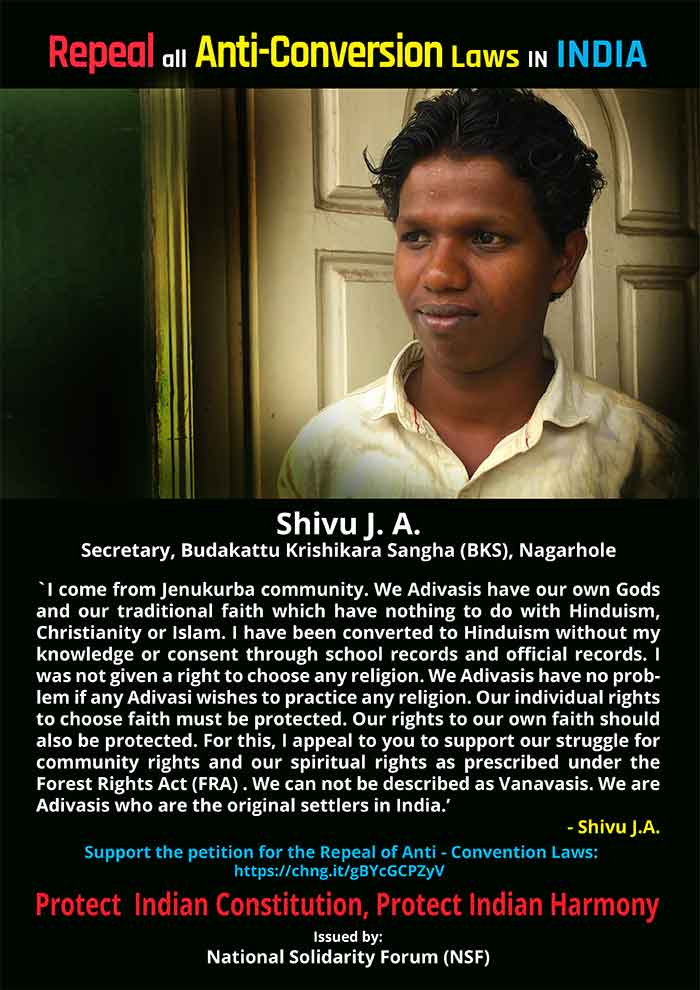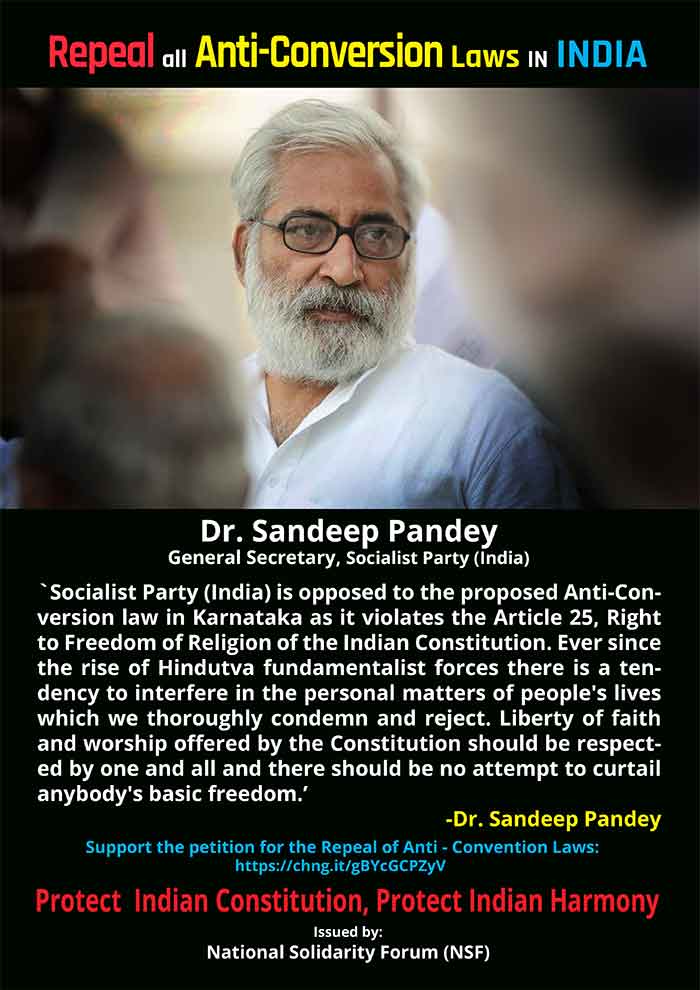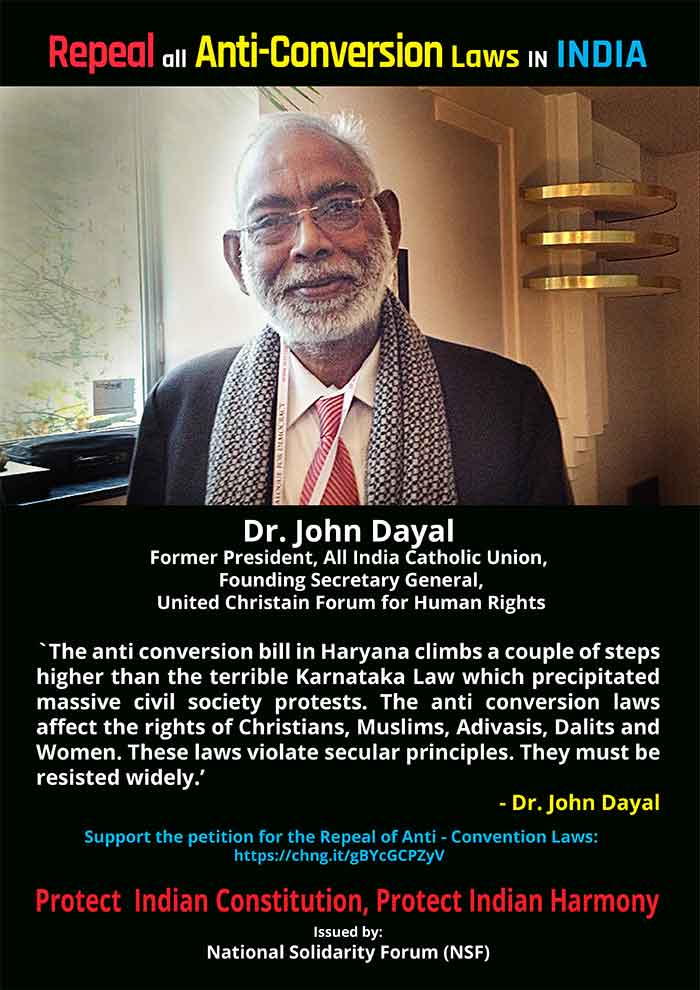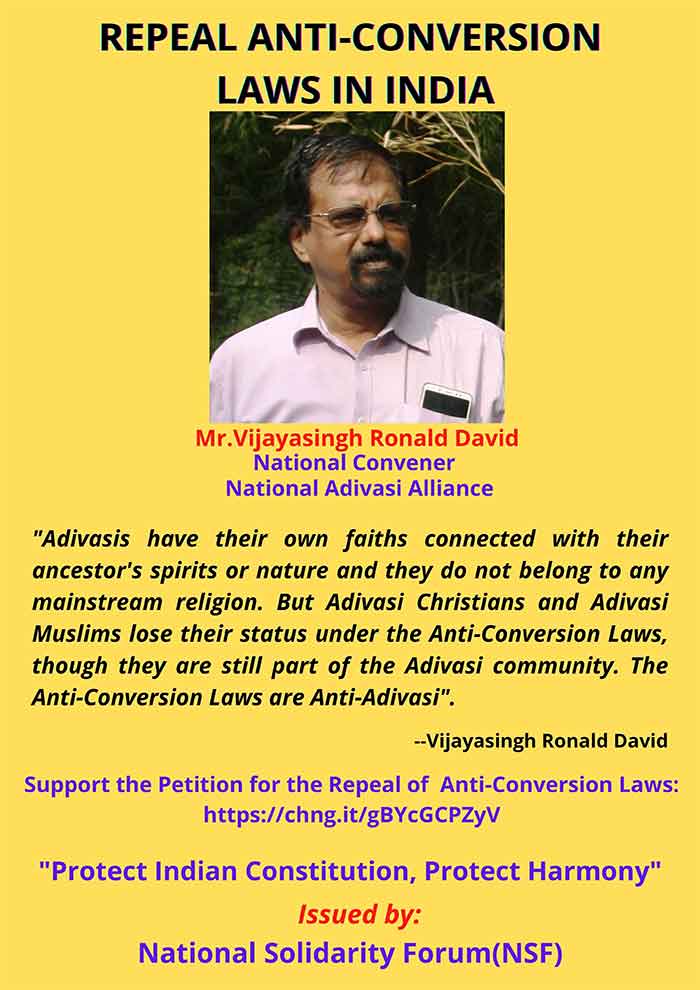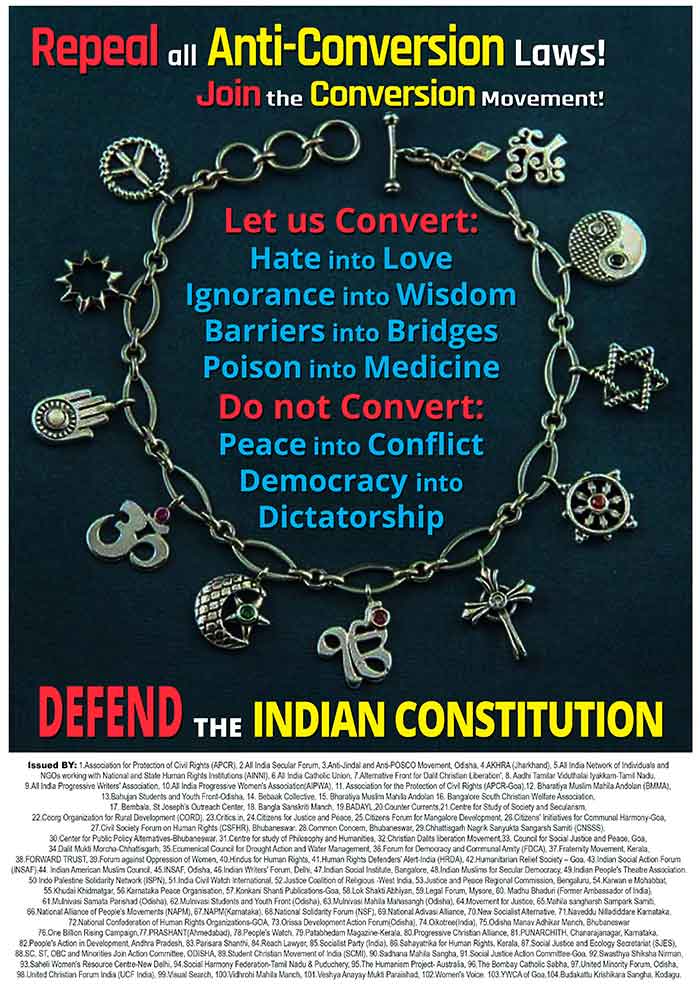
Anti-conversion laws in India, ironically also known as Freedom of Religion Acts, are state-level laws that have been enacted to regulate religious conversion. To date, Ten states out of twenty-eight states have enacted these laws: Orissa, Madhya Pradesh, Arunachal Pradesh, Gujarat, Chhattisgarh, Himachal Pradesh, Uttarakhand, Jharkhand, Uttar Pradesh and Karnataka. Haryana, this February, has introduced an anti-conversion bill in the Assembly. Recently, Manipur has also shown interest in bringing such laws. The majority of these states have a good number of Adivasi/Tribal populations. So it is intriguing to know why these laws are more familiar to Adivasi dominated states?. But in recent years, it is becoming common across the country, especially where BJP is the ruling party. In this piece, my focus is on Adivasi dominated states.
Anti-conversion laws are not a new phenomenon in India, it has a history since the colonial time. Around the 1930s and 1940s, some Hindu princely states enacted these laws to preserve Hindu religious identity out of the fear of the British missionaries. The princely states were Kota, Bikaner, Jodhpur, Raigarh, Patna, Surguja, Udaipur, and Kalahandi. In post-colonial India, despite pressure from Hindu groups to introduce anti-conversion laws at the national level, Nehru rejected such laws and upheld the secular credentials of the Indian constitution. Seeing the unwillingness of the central government to enact anti-conversion laws, states started to enact such laws. In the late 1960s, Orissa and Madhya Pradesh passed anti-conversion laws and followed by other states.
It is interesting to analyse the shift in motivation to enact anti-conversion laws here. In the early phase of post-colonial India, the central government was wary of missionary activity. But respecting the secular nature of the constitution government does not enact anti-conversion laws at the national level. Chad Bauman rightly sums up the politics behind the enactment of early anti-conversion laws, ”resistance to conversion to Christianity in this context emerged not out of concern for the spiritual state of converts so much as out of anxieties, real or perceived, about the survival of the fledgling Indian nation’.
In the post-colonial period, following the reemergence of the Hindu nationalist Rashtriya Swayamsevak Sangh (RSS) in the 1970s after its long exile from the Indian political scene for the killing of Mahatma Gandhi, incidences of religious violence against Muslims and Christians have increased tremendously. Sabreshwar Sahoo argues that around the 1990s, a correlation was visible between the advent of the BJP in national politics and the rise in violence against Muslims and Christians. Amita Baviskar observed an exciting shift among Adivasis. She argues that in the late 1990s, many Bhilala Adivasis in western Madhya Pradesh joined the battle for Hindu supremacy, attacking Christian Adivasis, later, Muslims. According to her, the issue was indigeneity, the politics of place and belonging in the Indian nation. Virginius Xaxa made a similar observation. He argues there is increasing animosity between Christian Adivasis and non-Christian Adivasis( Sarna Adivasis and Hindu Adivasis mainly) in the Chota Nagpur region, which is encouraged by the Hindutva groups.
Anti conversion laws are essential for BJP/Hindutva groups to pursue their core agenda. At the same time, they also push the idea among Adivasis that Christian Adivasis are stealing their all resources and benefits. Because of early interaction with missionaries, Christian Adivasis are more educated and aware of their identity. They are the ones often leading the social movement against the encroachment of rights of Adivasis over Jal, Jangal and Jameen. And this usually does not goes well with the plan of BJP and Hindutva groups. Hindutva groups(RSS) consider all Adivasis as a part of Hinduism. And according to them, Christian Adivasis are converted through fraud and deceit, and there is a need to bring them back to their original religion. This is not just fulfilling the Hindutva agenda of the Hindu nation-state but also not letting them identify themselves as indigenous. By denying the indigenous status, they also deny their rights over Jal, Jangal and Jameen. Through anti-conversion laws, the BJP government exploits the existing divide among Adivasis to discourage any movement and easily allot resources-rich Adivasis areas to industrialists. With the enactment of anti-conversion laws, BJP is pursuing its core agenda. One, by discouraging conversion and presenting them(Christian Adivasis) as “others”, BJP is pursuing its Hindu Nation-state and secondly, by preventing unity among Adivasis, it is countering any possibility of a successful movement against its pursuit of the neoliberal agenda in resource-rich Adivasis area.
Chhotelal Kumar, MA in Political Science from JNU New Delhi with a research interest in Adivasi Politics, Culture, and society.

